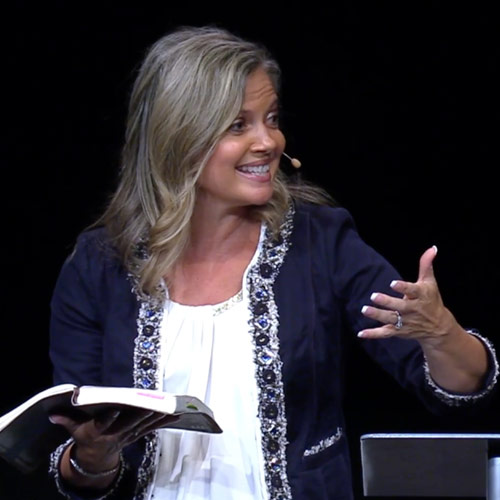No Offense, But…
Hatred stirs up strife, but love covers all offenses. Proverbs 10:12
Last week we looked at the power of forgiveness. Christ’s blood poured out from a cross at Calvary so you and I could escape the destructive power of sin. The promise of the cross doesn’t just pardon sin’s penalty, dear one. It conquers the present compulsion for sin in our day-to-day lives.
Beloved, you and I have been empowered by the Holy Spirit dwelling within us to live driven by Christ’s love rather than sin’s hate. We’ve been given a new nature—Christ’s nature—and that nature offers the power to dramatically change our present circumstances. When walking in that nature, we enjoy the beautiful fruit the Spirit provides.
But the fruit of the Spirit is love, joy, peace, patience, kindness, goodness, faithfulness, gentleness, self-control.
Galatians 5:22-23
Sounds good, doesn’t it? Wouldn’t you love to live each day feeling your heart swell with love and bubble over with joy? Wouldn’t you love the peace of God to wash away your anxiety and worry? Don’t you long to find yourself empowered to patience instead of blowing up at the people you love?
Unfortunately, that isn’t where most of us live. Instead, we far more readily suffer the fruit of the flesh, spending much of our days tied up in knots, feeling frustrated, angry, depressed, and overcome by the circumstances we find ourselves in. Our families end up baring the brunt of our misery.
What are we missing? Perhaps Matthew 6:14-15 will shed some light on the root of our struggle.
“For if you forgive others their trespasses, your heavenly Father will also forgive you, but if you do not forgive others their trespasses, neither will your Father forgive your trespasses.”
Powerful words. Jesus said if I refuse to forgive others, God won’t forgive me. Let’s put it another way. If I refuse to release others, God won’t release me.
No wonder so many of us feel stuck.
Harboring bitterness in your heart will keep you from experiencing the grace of forgiveness in your own life. That means the power God offers through forgiveness gets held back, and you’re left relying on your own strength.
You may have noticed. Your own doesn’t get you very far.
Dear one, God’s command to forgive those who wrong us isn’t about letting them off the hook. It’s about allowing God’s power to continue to flow into our lives. Bitterness blocks the flow of His love, and love empowers everything God does.
Love empowered Christ’s words as He hung from a bloody cross.
And Jesus said, “Father, forgive them, for they know not what they do.” Luke 23:34
The people screaming, “Crucify Him!” weren’t sorry. They hadn’t apologized. It wasn’t even over. They shouted insults while He bled for them. They celebrated His agony while He struggled to press His nail pierced feet into the wood of the cross, lifting His torso enough to gasp out the words, “Father, forgive them.”
The love released through that act of forgiveness shook the earth and tore the veil. It crumbled the barrier that separated man from God, and it made the way to conquer sin and death in the heart of man so love and life could flow in its place—love that empowers, love that redeems, love that transforms and heals.
When we choose bitterness, we embrace the spirit of the world—of hatred—rather than the Spirit of love Christ poured out. We choose our sin nature instead of Christ’s nature. Jesus always forgives.
You and I don’t deserve forgiveness, dear one. We’re guilty. Nothing we do can earn our way into it. But Jesus offers it anyway and asks us to receive it by faith.
Yet we don’t want to extend that grace to others. We want them to earn it. And we won’t offer forgiveness freely because whoever hurt us doesn’t deserve it.
I won’t argue with you. Nobody really deserves forgiveness. The very fact that we need to extend it means that a wrong has taken place.
But God’s not asking us to let people off the hook when He asks us to forgive them. He’s asking us to let Him bear the burden. He’s asking us to trust His promise in Exodus 14:14,
“The Lord will fight for you; you need only to be still.” (NIV)
When we trust God to keep His Word and surrender our bitterness, a beautiful thing happens. He moves on our behalf. And trusting Him accesses the grace of God to provide the fruit of the Spirit in us. Love replaces anger. Joy replaces bitterness. Peace overshadows strife.
Forgive, dear one, so you can be forgiven. Release your captors so you can be free.




